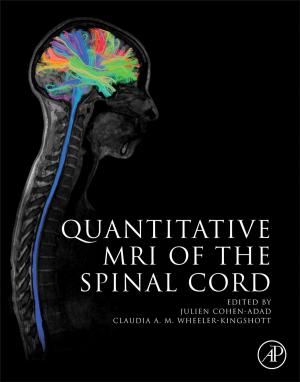Strengthening of Concrete Structures Using Fiber Reinforced Polymers (FRP)
Design, Construction and Practical Applications
Nonfiction, Science & Nature, Technology, Textiles & Polymers, Engineering, Civil| Author: | Hwai-Chung Wu, Christopher D Eamon | ISBN: | 9780081006412 |
| Publisher: | Elsevier Science | Publication: | February 21, 2017 |
| Imprint: | Woodhead Publishing | Language: | English |
| Author: | Hwai-Chung Wu, Christopher D Eamon |
| ISBN: | 9780081006412 |
| Publisher: | Elsevier Science |
| Publication: | February 21, 2017 |
| Imprint: | Woodhead Publishing |
| Language: | English |
Strengthening of Concrete Structures Using Fiber Reinforced Polymers (FRP): Design, Construction and Practical Applications presents a best practice guide on the structural design and strengthening of bridge structures using advanced Fiber Reinforced Polymer (FRP) composites. The book briefly covers the basic concepts of FRP materials and composite mechanics, while focusing on practical design and construction issues, including inspection and quality control, paying special attention to the differences in various design codes (US, Japan, and Europe) and recommendations.
At present, several design guides from the US, Japan, and Europe are available. These guidelines are often inconsistent and do not cover all necessary design and inspection issues to the same degree of detail. This book provides a critical review and comparison of these guidelines, and then puts forward best practice recommendations, filling a significant gap in the literature, and serving as an important resource for engineers, architects, academics, and students interested in FRP materials and their structural applications. Written from a practitioner's point-of-view, it is a valuable design book for structural engineers all over the world.
- Includes a large quantity of design examples and structural software to facilitate learning and help readers perform routine design
- Provides recommendations for best practices in design and construction for the strengthening of bridge structures using advanced fiber-reinforced polymer (FRP) composites
- Presents comprehensive guidelines on design, inspection, and quality control, including laboratory and field testing information
Strengthening of Concrete Structures Using Fiber Reinforced Polymers (FRP): Design, Construction and Practical Applications presents a best practice guide on the structural design and strengthening of bridge structures using advanced Fiber Reinforced Polymer (FRP) composites. The book briefly covers the basic concepts of FRP materials and composite mechanics, while focusing on practical design and construction issues, including inspection and quality control, paying special attention to the differences in various design codes (US, Japan, and Europe) and recommendations.
At present, several design guides from the US, Japan, and Europe are available. These guidelines are often inconsistent and do not cover all necessary design and inspection issues to the same degree of detail. This book provides a critical review and comparison of these guidelines, and then puts forward best practice recommendations, filling a significant gap in the literature, and serving as an important resource for engineers, architects, academics, and students interested in FRP materials and their structural applications. Written from a practitioner's point-of-view, it is a valuable design book for structural engineers all over the world.
- Includes a large quantity of design examples and structural software to facilitate learning and help readers perform routine design
- Provides recommendations for best practices in design and construction for the strengthening of bridge structures using advanced fiber-reinforced polymer (FRP) composites
- Presents comprehensive guidelines on design, inspection, and quality control, including laboratory and field testing information















